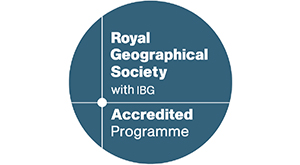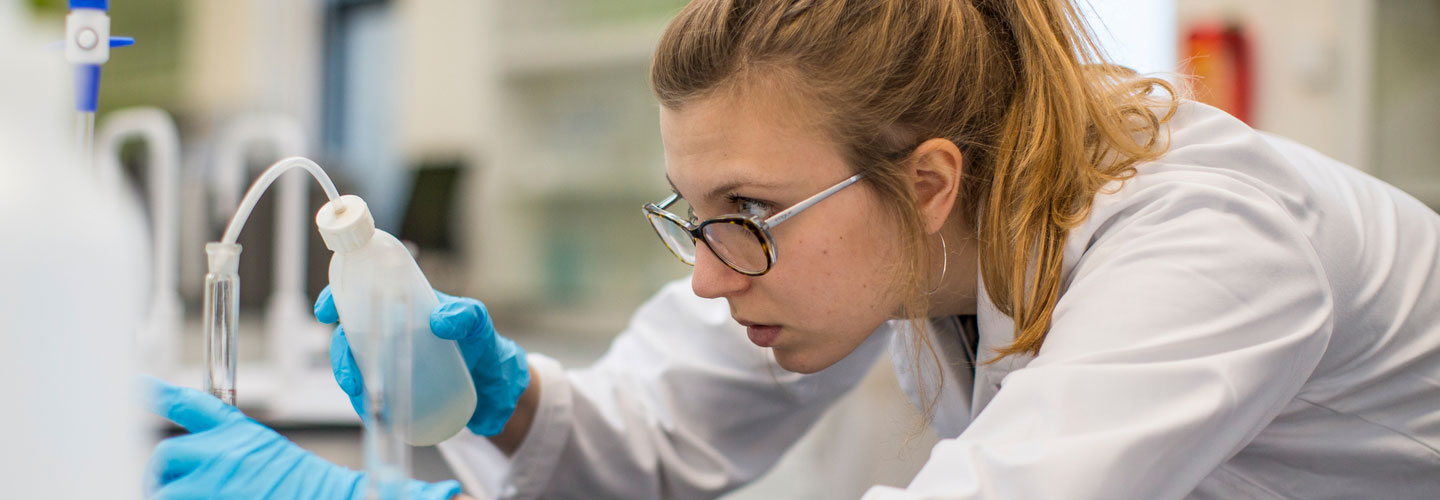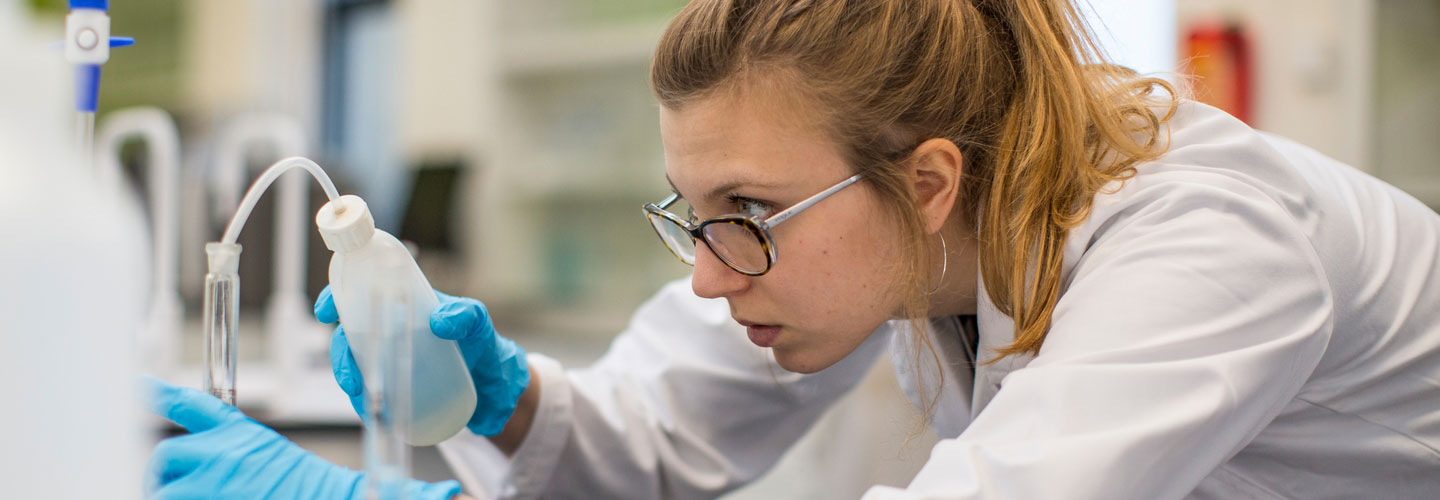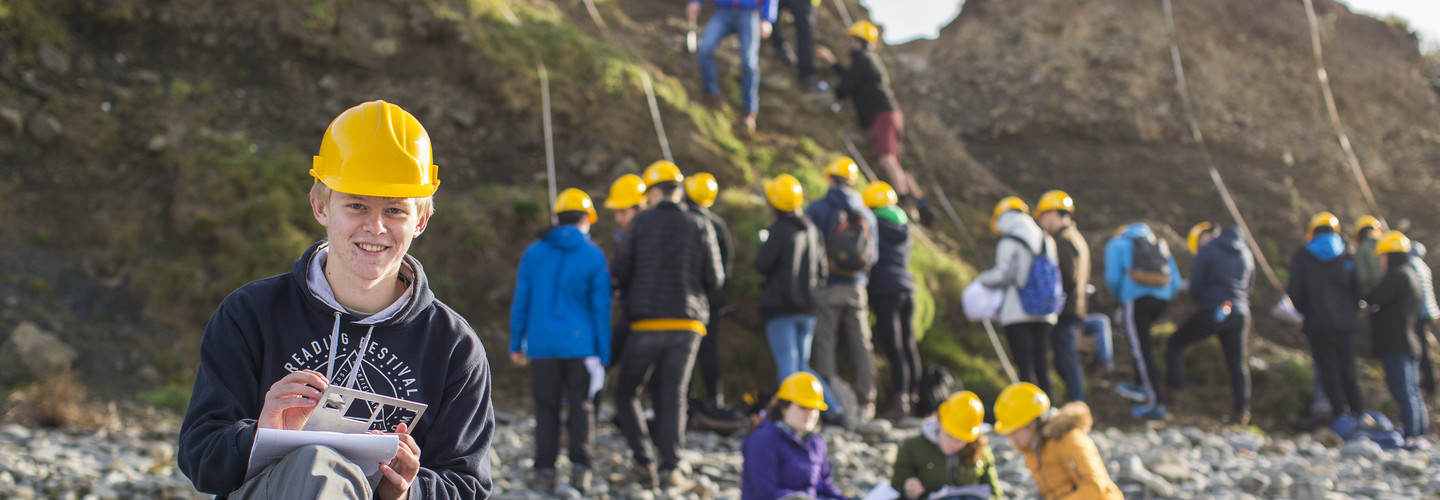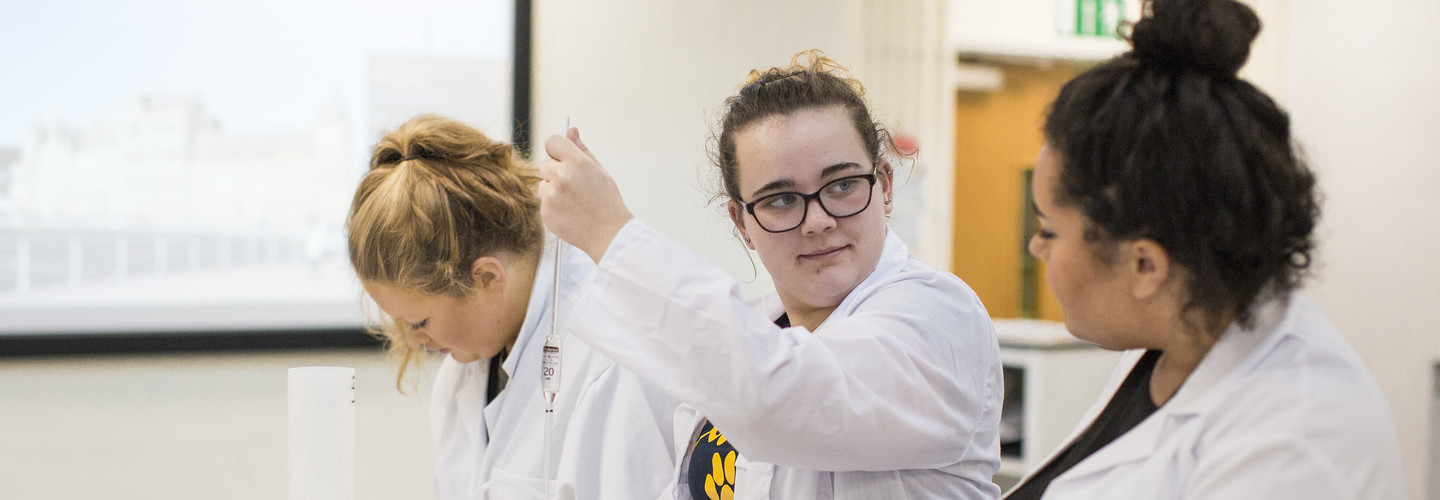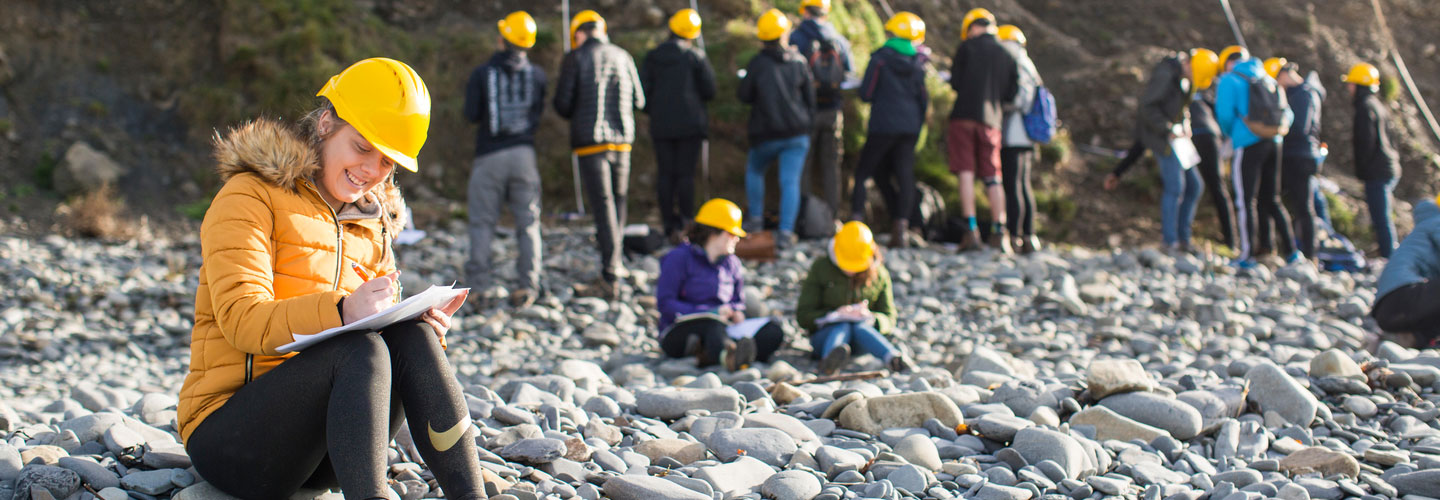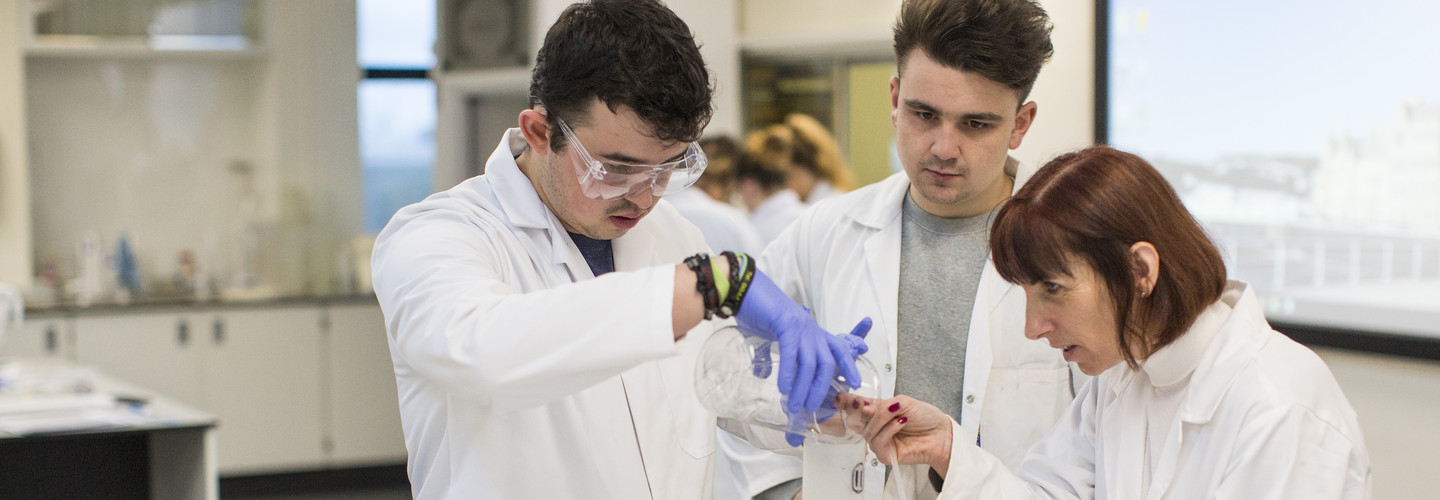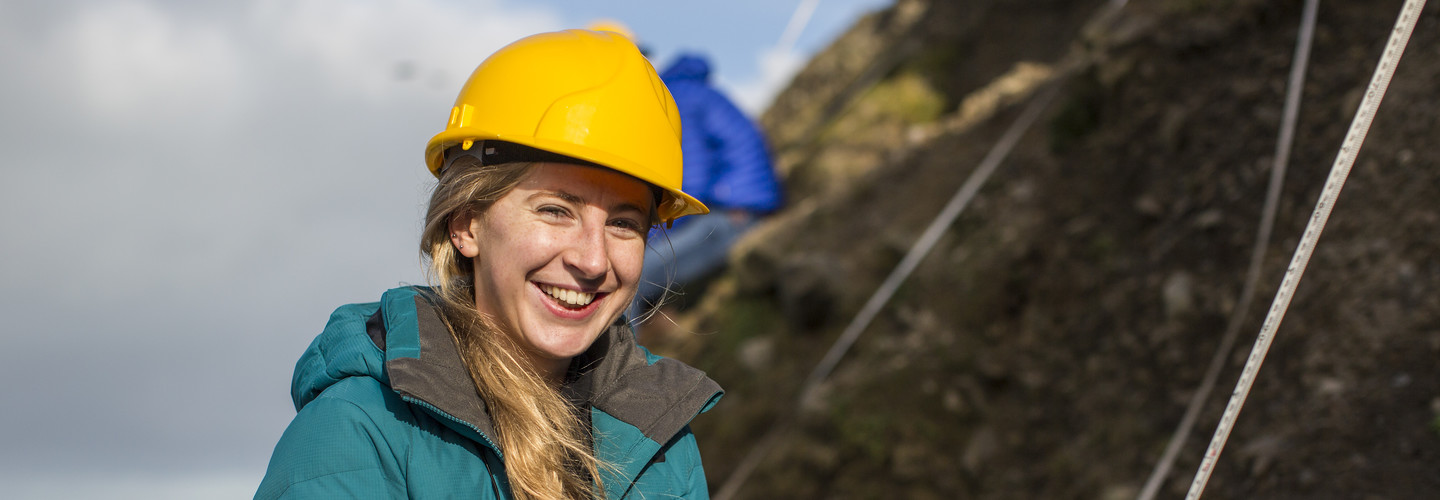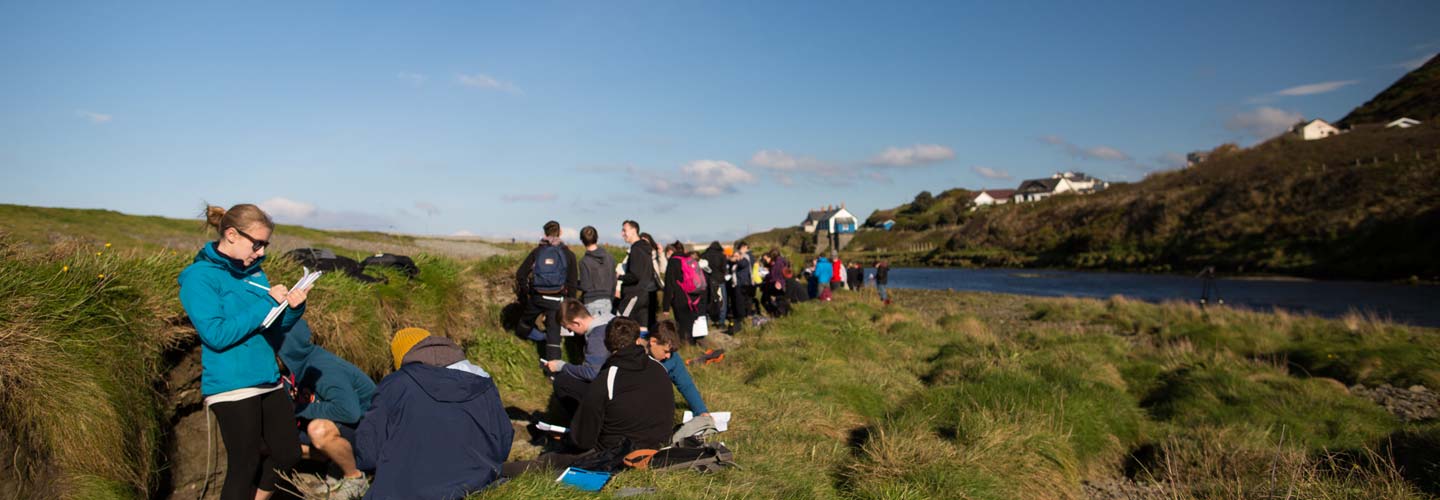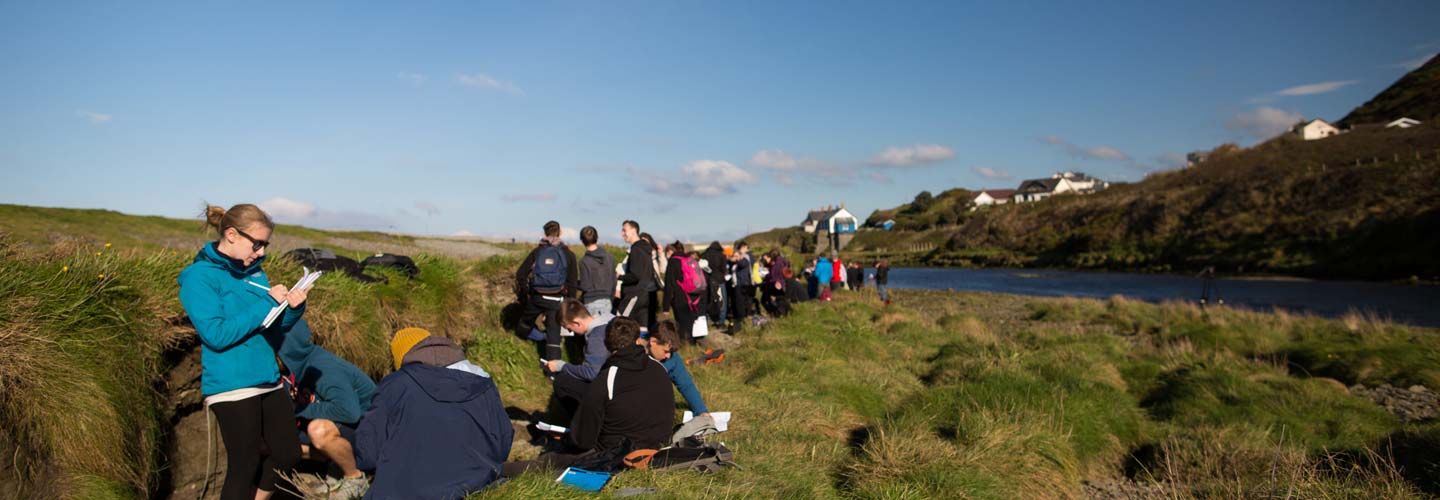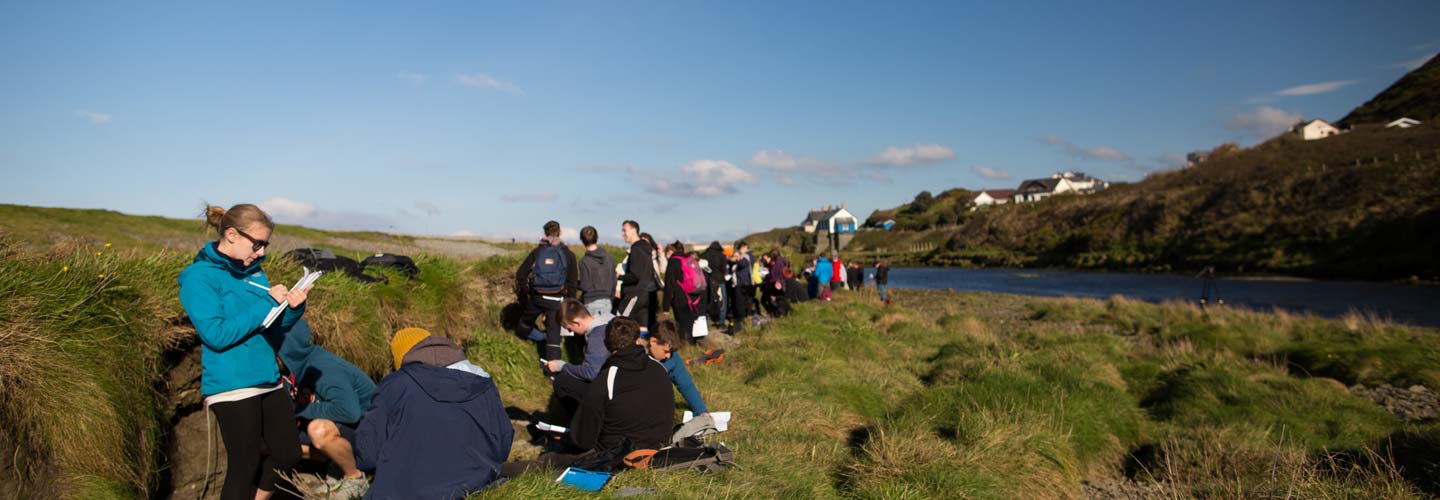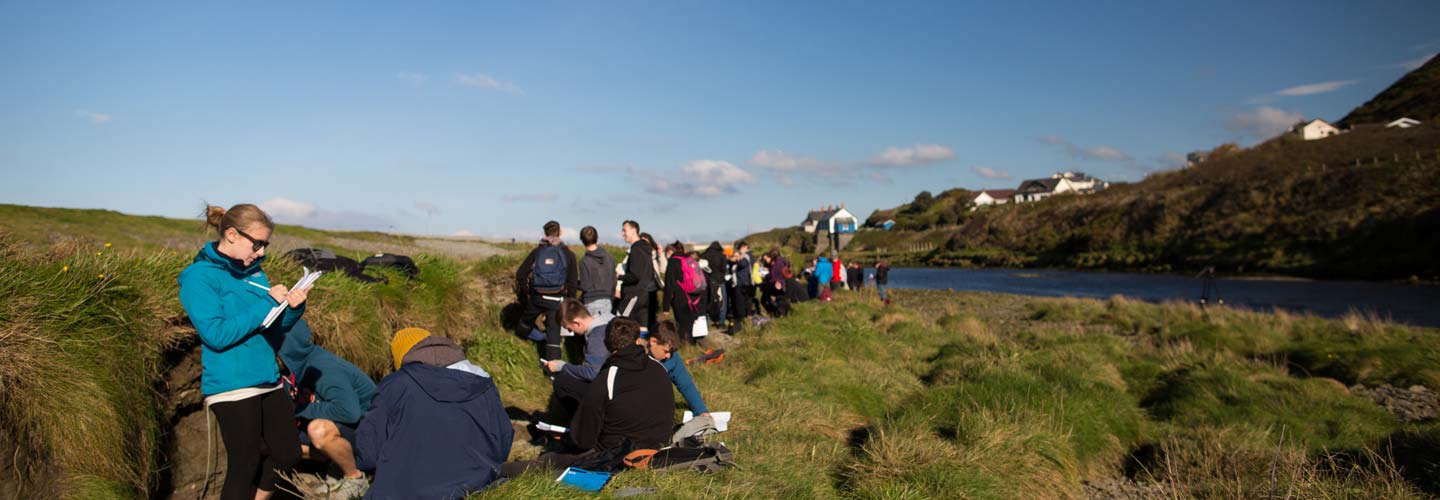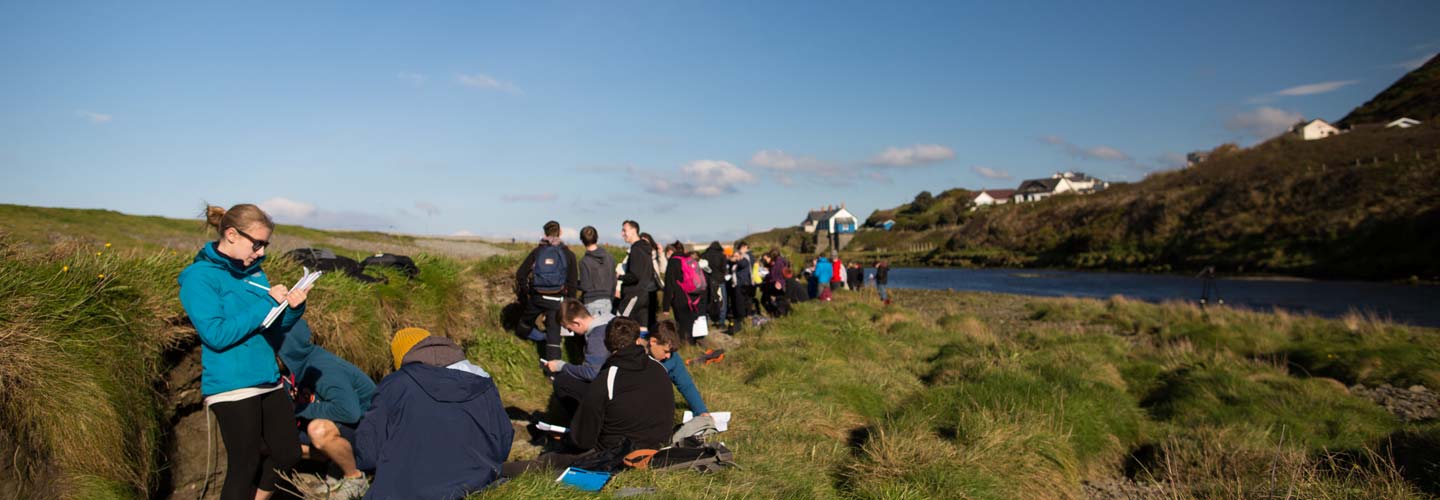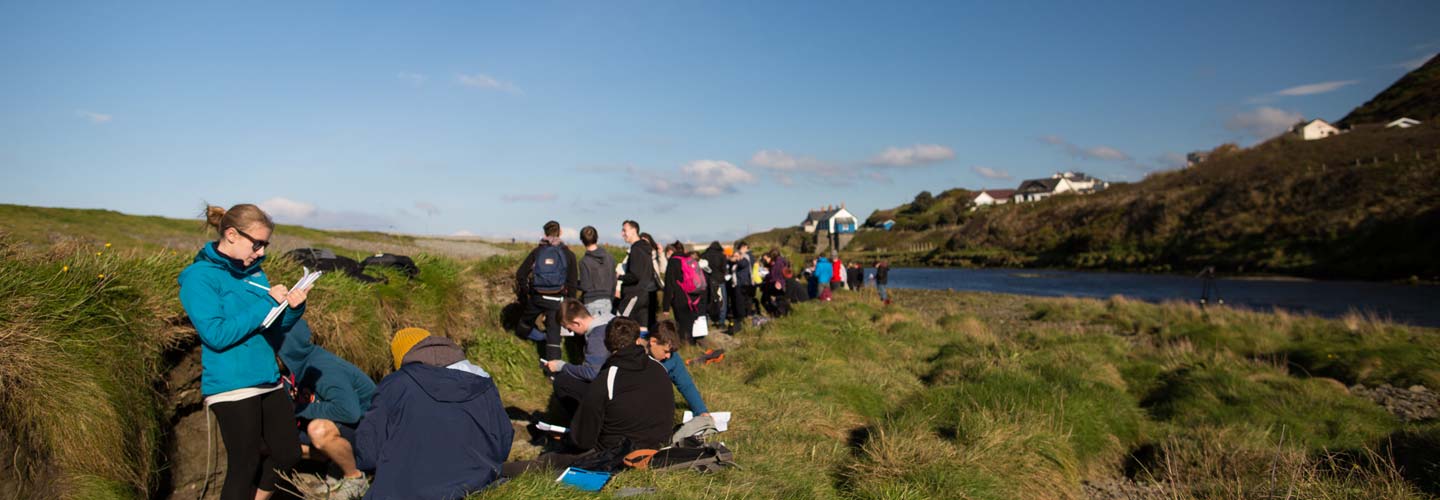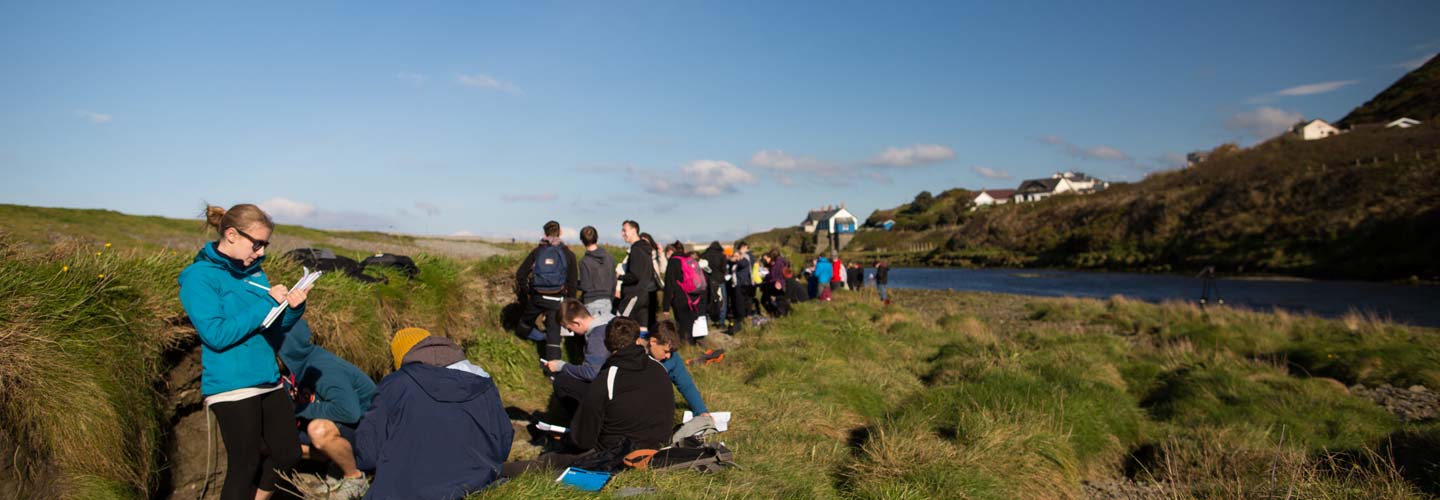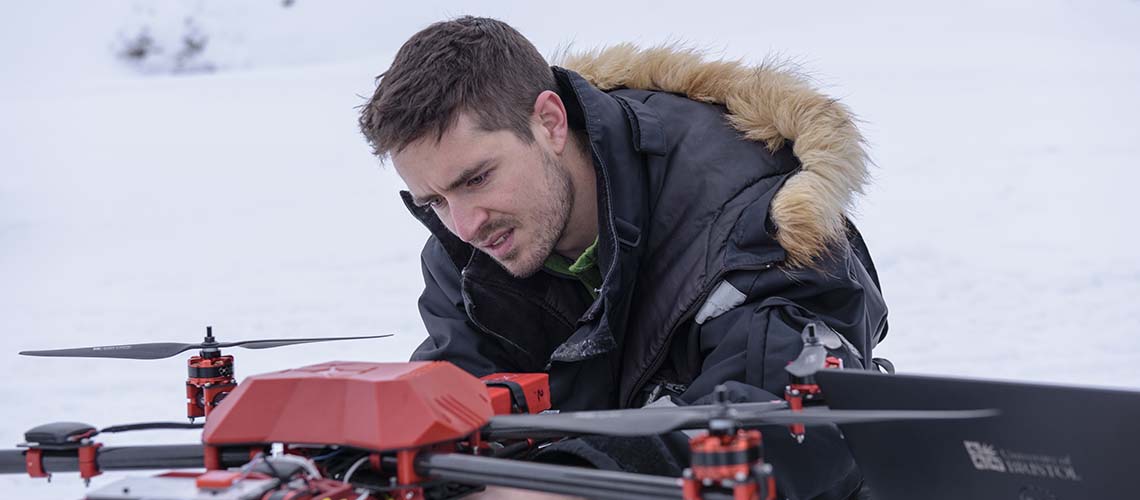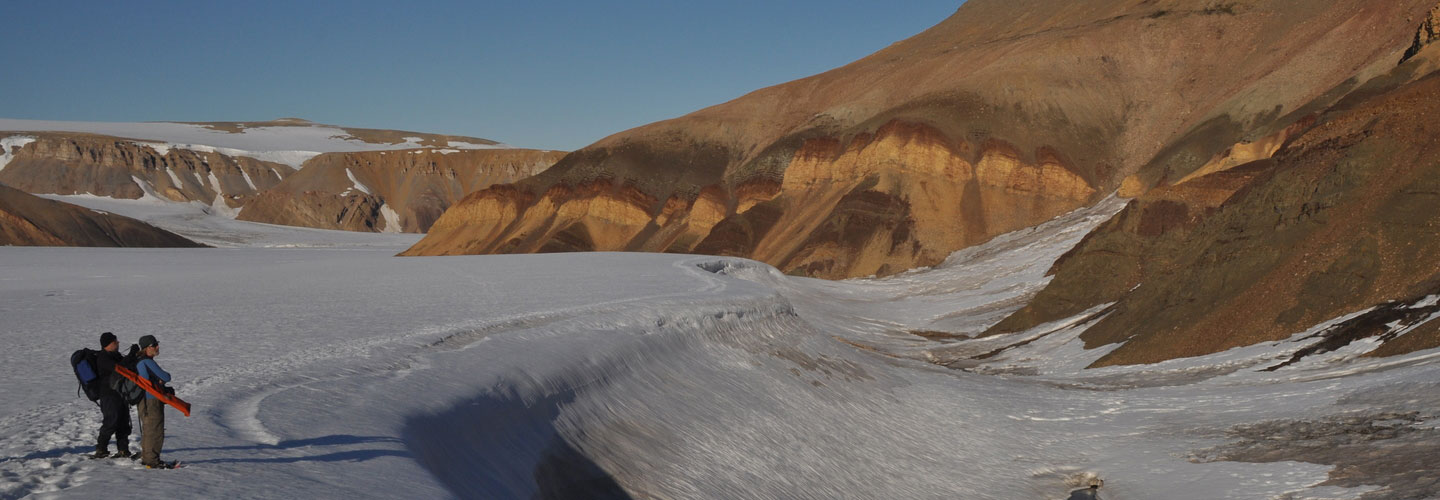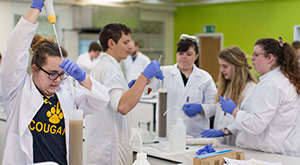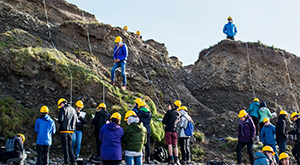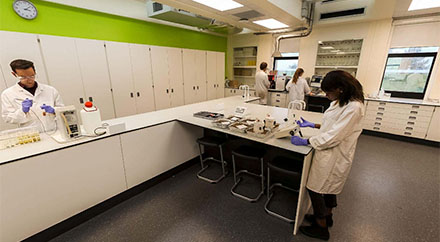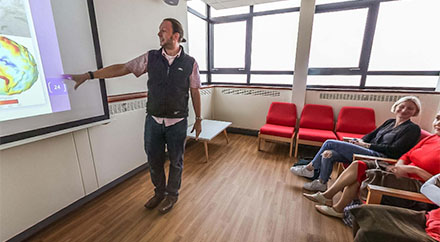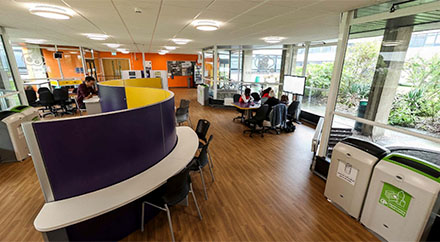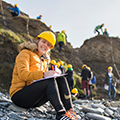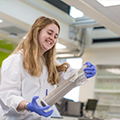You will be taught by world-leading researchers during your time in Aberystwyth. Our staff are experts across a broad range of areas of human geography, physical geography, environmental science, Earth science and sociology, working across several distinct research groups: Centre for Glaciology; Cultural and Historical Geography; Earth Observation and Ecosystem Dynamics; Earth Surface Processes; New Political Geographies; Quaternary Environmental Change and Interdisciplinary Centre for Environmental Microbiology and Geochemistry.
In the most recent UK-wide research assessment (REF 2021) 95% of our research is world-leading or internationally excellent, signifying both the quality and breadth of research that we undertake. A key feature of the ‘research-led teaching’ ethos at Aberystwyth, is that you will have regular contact with acknowledged pioneers and leaders in their respective fields. This ensures that you are exposed to the latest academic thinking in undergraduate lectures, tutorials, seminars and field courses throughout our programmes.
CHERISH (Climate, Heritage and Environments of Reefs, Islands and Headlands):
EU Funded Project that aims to increase knowledge and understanding of the impacts (past, present and near-future) of climate change, increased storminess and extreme weather events on the cultural heritage of reefs, islands and headlands of the Welsh and Irish regional seas, also involving the Royal Commission, The Discovery Programme and Geological Survey, Ireland.
Glacial Hazards in Chile:
NERC (UK) and CONICYT (Chile) funded project that aims to answer key questions concerning past, present and future glacial hazards in Chile. The project assesses the changing magnitude, frequency, and distribution of different glacial hazards in Chile under current and future global climate change. The project brings together leading researchers from Aberystwyth University (UK), Austral University of Chile, Exeter University (UK), Reynolds International Ltd (UK) and University of Magallanes (Chile).
Earth Observation and Ecosystem Dynamics:
The Earth Observation team in Aberystwyth use ground, airborne and spaceborne remote sensing data for better understanding the direct and indirect impacts of climate change on ecosystems and environments. The team have developed tools for identifying malaria vector habitats by exploiting information from remotely sensed data and its products. In doing so, malaria control activities can be targeted in areas where it is needed most to help eliminate this disease.
Global-Rural:
This wide-ranging project aims to discover how globalisation is changing rural places around the world and how different communities are responding. Research has focused on a range of themes and sites, including studying how New Zealand has become a global dairy superpower, how businesses in Newtown (Wales) are using novel ways to complete in an increasingly global marketplace, and how the production, consumption of sugar have influenced rural economies and trade.
WISERD (Wales Institute of Social and Economic Research Data and Methods):
This national multi-institution research centre undertakes cutting edge research on civil society spanning human geography, sociology and other social science disciplines. Research themes have included: migration, minorities and society; local communities and globalisation; and language, culture and identity.

